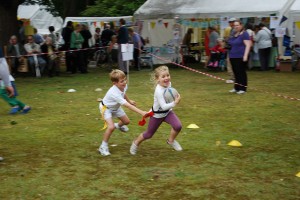 I’ve been involved in rugby, of either code and sometimes both at once, since I started playing at the age of 11. Prior to that, I’d watched the game on television for as long as I could remember – and also had the pleasure of seeing my older sister play for the local boys’ RL team where she was the best tackler by some distance. My involvement has been varied: player, captain, parent, coach, manager, referee and administrator, so I’ve seen the game from just about every possible angle.
I’ve been involved in rugby, of either code and sometimes both at once, since I started playing at the age of 11. Prior to that, I’d watched the game on television for as long as I could remember – and also had the pleasure of seeing my older sister play for the local boys’ RL team where she was the best tackler by some distance. My involvement has been varied: player, captain, parent, coach, manager, referee and administrator, so I’ve seen the game from just about every possible angle.
Many of the people reading this blog probably have one thing in common – that they’ve played rugby at whatever level, simply for the enjoyment of the game. They may enjoy it for a variety of different reasons: some will relish the physical side as a test of courage or as a means to work off aggression; others for the fitness element; and others still may value the team spirit and off-field camaraderie peculiar to rugby. But I’ve often thought that players – even internationals on a pretty good salary –play because they love playing.
I’ve arrived at this conclusion through experience and analysis of my own playing career, plus what I have learned about players and about myself in eight years as a junior rugby coach in Yorkshire, built on a foundation of lots of rugby watched over the years. Many other coaches I’ve spoken to tell me the same, and recently the RFU in England has recognised this in a review of how mini rugby is played, and the trend is now firmly towards encouraging enjoyment of the game rather than a focus on winning matches. However, I’m aware that if you’re reading this, then you’re intelligent enough to expect some evidence to back up these bald assertions, so here goes.
First of all, look at international rugby. Some of the best sides of my lifetime (think France and Wales in the 70s, the 1984 Wallabies, pretty much any vintage of All Blacks and England from 2000-2003) have been characterised by a fast, exciting style of 15-man rugby. For those who like to believe England under Sir Clive were a boring, 10-man outfit winning games only through the boot of Jonny Wilkinson, watch the following video:
What you see in that clip (which doesn’t cover some of the magnificent rugby they played in 1999-2000, but if you can find video of the games v Wales and Ireland in 2000 you’ll enjoy more of the same) is a team that does the core basics superbly well at pace. There’s a big pack that is solid in the set piece and can be relied upon to win all its own ball and a few against the throw-in, and at the same time mobile enough to ensure lots of quick ball at the breakdown and to link usefully in attack from 1-8.
Behind the scrum, there’s quick and decisive service from the half-backs, then great intelligent running and support lines from the outside backs to exploit gaps and finish moves. But it’s what goes on top that sets these great teams apart: outrageous individual skills and the balls to show them off on the biggest stage, right through the team from loose-head to full back, and all of the great teams have that in their locker.
It’s the way kids play in the playground, and can only be described as players having fun on the pitch; the only difference being that unlike children, international players use their skills to serve the team rather than simply to try and shine.
So what does this look at England tell us? Clearly, those players were enjoying their rugby. But, you might say, that’s no surprise as they were winning most of their games and running in plenty of tries. Fair comment, but that puts the cart before the horse; they were scoring all those and tries and winning their games BECAUSE they were enjoying their rugby. Those players were in a supremely happy place before they ever stepped onto the pitch, and as a result they played without fear and the results came from there.
In Sir Clive Woodward’s superb book ‘Winning!’ he states that one of his goals when he took over the England job was to get the team playing rugby that they would enjoy playing and that spectators would want to watch. This was one of his key building blocks to success on the field and led to the ultimate prize of a World Cup triumph in 2003.
Lower down the pyramid, the benefits of playing for enjoyment are less tangible. Junior club sides, without the financial and logistical resources of an international team, find it harder to turn this approach into points because they don’t get to spend as long working on their skills and don’t have access to the very best in performance management and improvement tools. Nowhere is this more true than in age grade rugby where real success is usually measured elsewhere than on the scoreboard. Skills development and player retention are much more important performance indicators for junior coaches, and for those with players’ interests truly at heart, winning games and trophies is a secondary consideration.
Having said that, my experience as an U7 coach this last season has been that by focusing on fun, enjoyment, team spirit and skills progression, results on the pitch follow.
Starting in September with the aim of growing the squad, we made sure that every session was a fun experience for all the players, so they’d want to come back and would bring friends with them. We registered over 50 players, giving us a 28-player U8 squad to start next season and 23 remaining at U7. I expect retention to be about 94-98%, quite simply because the players love the experience, all get an opportunity to play, are treated fairly and just enjoy being around each other. It wasn’t until April that they first lost a competitive match, and even then, they played superb rugby in defeat – just as they did on tour at the end of the season, where in the first minute of their opening game in terrible conditions, they scored after a double switch and a dummy created a huge gap in the defence. They simply go onto the pitch each time aiming to play great rugby, rather than aiming to win.
When this sense of enjoyment is absent, it’s often painfully obvious. England’s ponderous performances at the last Rugby World Cup looked like a side who just didn’t want to be anywhere near a rugby field. Clearly, there was enjoyment being had of a sort in the bars and nightclubs of New Zealand, but from the player questionnaires leaked after the event, it wasn’t the healthy kind of fun that helps teams to bond.
I’ve had personal experience of this with my older son, who having played from the age of 4 for his local club, gave up earlier this season because he was being constantly excluded from team activities. In a side looking to attack wide at every opportunity, and averaging over 40 points per game, he was playing centre, wing and full back and yet was never getting the ball. As game after game went by in which he only touched the ball if the opposition kicked it to him, his confidence collapsed and his performance went with it – and this had a knock-on effect at school where his rugby also went downhill. His club coach was aware he wasn’t happy but made no effort to involve him more fully in games, because it would have meant challenging the behaviour of some star players and the team was winning games, so why meddle? They’ve focussed on winning and over the last two seasons they’ve got there, but I fear that the feel-good factor of winning is what holds them together. When they stop winning every week, will the team pull through, or will it implode? My son’s experience is a clear indicator that without enjoyment of the game, young players will perform less well and may even give up altogether – after all, he quit from a winning team, so clearly the winning wasn’t enough for him.
Similarly, all the very best teams play with a swagger and a smile and have every team member playing their part to the full and feeling properly included. At whatever level of the game, players play because they love playing. Fun is fundamental. Coaches ignore this fact at their peril.








 When most people hear the word “Peloton” they think of an expensive black bike with shiny red buttons and that controversial commercial where the husband gifted his wife a Peloton for Christmas.
When most people hear the word “Peloton” they think of an expensive black bike with shiny red buttons and that controversial commercial where the husband gifted his wife a Peloton for Christmas. If the app interests you, Peloton is currently offering a 30 day FREE TRIAL, so why not give it a try? Check it out
If the app interests you, Peloton is currently offering a 30 day FREE TRIAL, so why not give it a try? Check it out 

 This article would not be complete, however, if we did not acknowledge some of the delivery issues that have been plaguing Peloton over the last year. Most of the delivery issues seem to affect U.S. deliveries, however, the UK deliveries have been affected as well.
This article would not be complete, however, if we did not acknowledge some of the delivery issues that have been plaguing Peloton over the last year. Most of the delivery issues seem to affect U.S. deliveries, however, the UK deliveries have been affected as well.








1 Comment to In Rugby, Fun is Fundamental